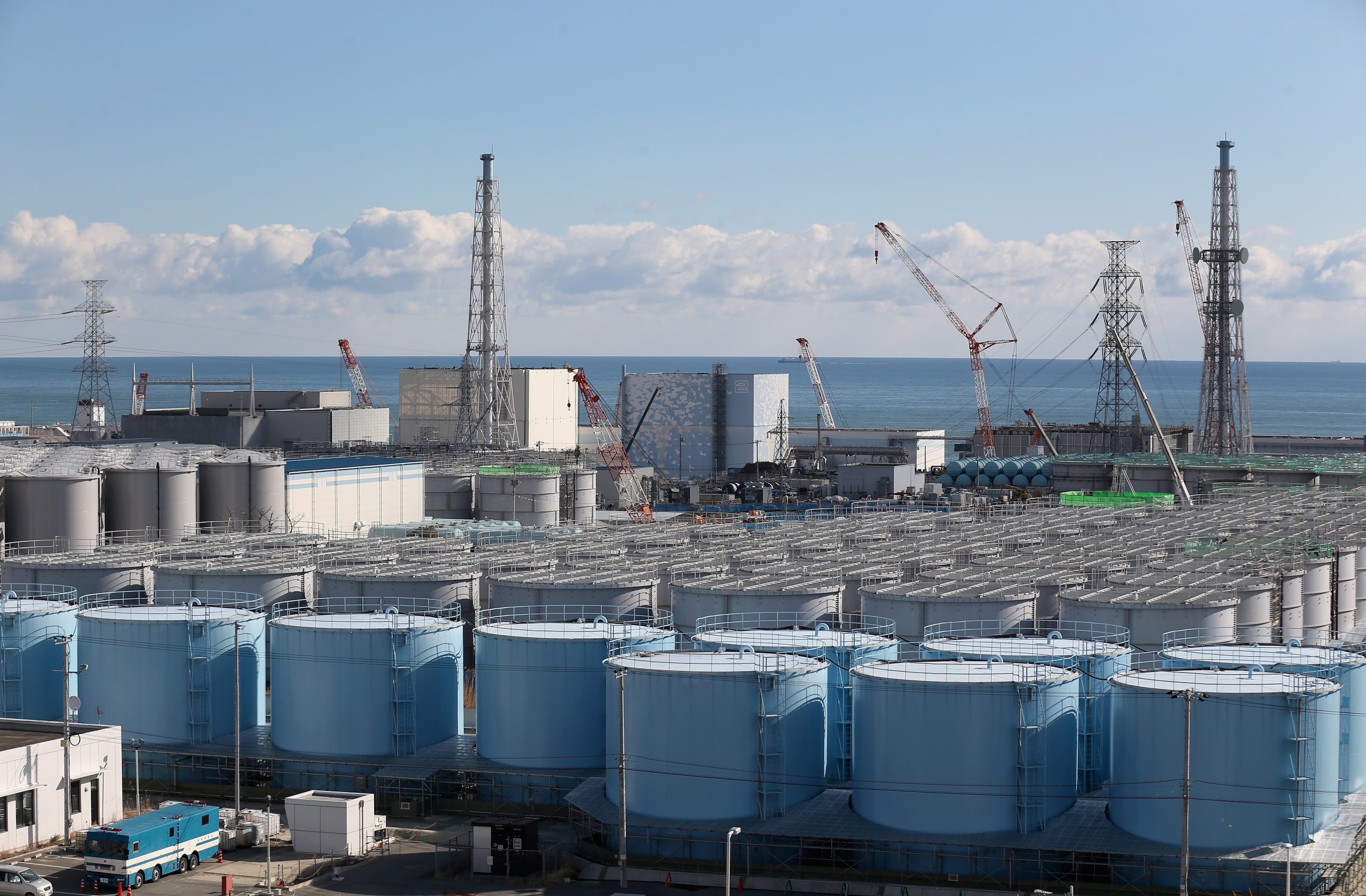Japan has said it will start releasing more than one million metric tonnes of treated radioactive water from the devastated Fukushima nuclear power plant on 24 August, despite concerns among neighbouring countries, including China, and local fishing communities.
The plan, approved two years ago by the Japanese government, is seen as crucial to the decommissioning of the nuclear power station, which was crushed in the tsunami of March 2011.
The water, used to keep the reactors cool, has been stored at the site since the disaster and plant operator Tokyo Electric Power Co (Tepco) is running out of space to keep it.
Prime Minister Fumio Kishida said on Tuesday he had asked Tepco to “swiftly prepare” for the water discharge and expected the “water release to start on 24 August, weather conditions permitting”.
Japan has said the water release is safe, which has been backed by the International Atomic Energy Agency (IAEA). The United Nations nuclear watchdog gave the plan the go-ahead after an inspection in July, saying it met international standards and that the effect on people and the environment was “negligible”.
Still, some neighbouring countries, particularly China, have expressed scepticism over the safety of the plan.
Foreign Ministry spokesperson Wang Wenbin accused Japan on Tuesday of planning to “arbitrarily dump nuclear-contaminated water”.
“The ocean is the common property of all humankind, not a place for Japan to arbitrarily dump nuclear-contaminated water,” Wenbin said, adding that Beijing would take “necessary measures to safeguard the marine environment, food safety and public health”.
South Korean activists have also protested against the plan, although Seoul has concluded from its own study that the water release meets international standards and said it respects the IAEA’s assessment. It said on Tuesday that there was no scientific or technical problem with the plan although that did not mean it necessarily supported it.
The water – equivalent to more than 500 Olympic-sized swimming pools – also includes groundwater and rain that has seeped into the containers.
The water has been diluted and filtered to remove radioactive substances although there remain some traces of tritium, an isotope of hydrogen that is difficult to separate from water, according to Tepco, which says the water will be diluted to well below internationally approved levels of tritium before being released into the Pacific.
The water will be released into the ocean, off Japan’s northeast coast, at a maximum rate of 500,000 litres (about 110,000 gallons) per day.
Environmental pressure group Greenpeace has said the filtration process is flawed and that an “immense” quantity of radioactive material will be dispersed into the sea over the coming decades.
But Tony Hooker, a nuclear expert from the University of Adelaide in Australia, dismissed its argument as “fear-mongering”.
“Tritium has been released [by nuclear power plants] for decades with no evidential detrimental environmental or health effects,” Hooker told the AFP.
China bans seafood imports from 10 prefectures in Japan, including Fukushima and the capital, Tokyo. Seafood imports from other prefectures are allowed but must pass radioactivity tests and have proof they were produced outside the 10 banned prefectures.
Hong Kong, the second biggest market for Japanese seafood exports after China, on Tuesday called the release “irresponsible” and said it would activate import controls to protect food safety and public health.
The discharge posed “impossible risks to food safety and the irreparable pollution and destruction of the marine environment,” Hong Kong Chief Executive John Lee wrote on Facebook.
People in South Korea are also concerned, with hundreds gathering in Seoul earlier this month to show their opposition to the plan.
That is a concern for people in Japan’s fishing industry, where business was beginning to recover more than a decade after the nuclear disaster.
“Nothing about the water release is beneficial to us,” third-generation fisherman Haruo Ono, 71, whose brother was killed in 2011, told AFP in Shinchimachi, 60 kilometres (40 miles) north of the nuclear plant.
James Brady from the Teneo risk consultancy said that while China’s safety concerns may be sincere, there was a whiff of geopolitics and economic rivalry in its response.
“The multifaceted nature of the Fukushima wastewater release issue makes it quite a useful one for Beijing to potentially exploit,” Brady said.
Beijing can “leverage a degree of economic pressure on the trade axis, exacerbate internal domestic political cleavages on the issue within Japan … and even potentially put pressure on improving diplomatic ties between Seoul and Tokyo”.
SOURCE: AFP/PACNEWS














